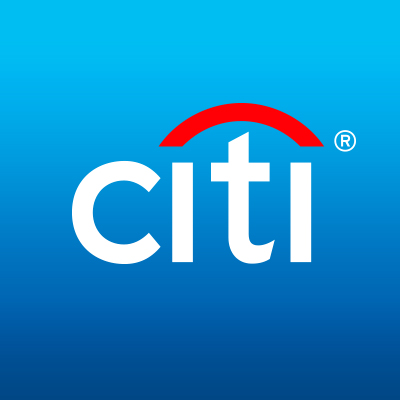In other news, Citi taps Delta Capita, MUFG & Morgan Stanley focus on FX & Clear Street acquires React Consulting Services.
DTCC, CME Need Regulators to Allow Cross-Margining Expansion
 Post-trade infrastructure system and services provider DTCC and derivatives exchanges company CME Group report that they would like to improve their cross-margining arrangement so that clearing members of CME and the Government Securities Division of DTCC’s Fixed Income Clearing Corp. (FICC) can trade and clear U.S. Treasury securities and CME Group Interest Rate futures.
Post-trade infrastructure system and services provider DTCC and derivatives exchanges company CME Group report that they would like to improve their cross-margining arrangement so that clearing members of CME and the Government Securities Division of DTCC’s Fixed Income Clearing Corp. (FICC) can trade and clear U.S. Treasury securities and CME Group Interest Rate futures.
“The proposed changes, subject to regulatory approval, are expected to launch in January 2024,” according to the announcement.
The enhanced agreement that may come will allow eligible clearing members “to benefit from the program today will be able to cross-margin an expanded suite of products, including CME Group SOFR futures, Ultra 10-Year U.S. Treasury Note futures and Ultra U.S. Treasury Bond futures,” officials say. “FICC-cleared U.S. Treasury notes and bonds and Repo transactions that have a time to maturity greater than one year will also be eligible.”
“Today’s announcement builds on 20 years of our organizations working together to create efficiencies for Treasury market participants,” says Suzanne Sprague, global head of clearing and post-trade services at CME Group, in a prepared statement. “As evidenced in the G30 report, cross-margining has been identified as both a market benefit and a regulatory priority going forward.”
The CME Group offers transaction venues for the trading of futures, options, cash and over-the-counter (OTC) instruments. The company also offers futures and options on futures trading via the CME Globex platform, fixed income trading via BrokerTec, foreign exchange trading on the EBS platform, and central counterparty clearing via CME Clearing, officials say.
In 2022, DTCC’s subsidiaries processed securities transactions valued at U.S. $2.5 quadrillion, officials say. The DTCC’s depository provides custody and asset servicing for securities issues from over 150 countries and territories valued at U.S. $72 trillion. The DTCC’s Global Trade Repository service processes more than 17.5 billion messages annually.
Delta Capita Tapped to Commercialize Citi’s QMA
 Citi has picked Delta Capita, a capital markets consulting, managed services and technology provider “to scale and commercialize” its QMA proprietary digital communications workflow management software, officials say. Delta Capita is a business of Prytek Financial Services.
Citi has picked Delta Capita, a capital markets consulting, managed services and technology provider “to scale and commercialize” its QMA proprietary digital communications workflow management software, officials say. Delta Capita is a business of Prytek Financial Services.
QMA is a workflow management tool “specifically designed to enable operations and service teams” for the management of high volumes of email, chat, and other digital communications,” officials say. “QMA enables enhanced management of team capacity and highlights opportunities for process improvement.”
As part of the deal, Citi “will be a minority investor in the Delta Capita majority-owned subsidiary formed to commercialize the product, and take it to market,” officials say.
For now, Citi’s user base leverages QMA “in multiple business lines across 63 countries to deliver measurable improvements to client experience, significant reduction in email volumes through auto-assignment, and rapid response to client enquiries,” officials add.
The Citi deal “accelerates Delta Capita’s aim to deliver superior mutualized managed services and technology tools to the financial services industry and demonstrates Citi’s leadership in driving innovative solutions that are reshaping the way business is done. Delta Capita and Citi recognize QMA’s potential to benefit the broader industry by providing a solution to navigate multiple digital communications channels and drive efficiency,” officials add.
“For certain products and services, our first choice is very much to partner with external companies, but it is not always possible to find solutions in the market. This was the case for QMA and as a result we built a market leading, innovative solution,” says Emily Turner, head of business development for Citi’s Institutional Clients Group, in a prepared statement. “We look forward to Delta Capita’s development of the technology with Citi continuing to benefit as a customer and investor.”
MUFG & Morgan Stanley to Tackle FX via ‘Alliance 2.0’
 Japanese banking giant Mitsubishi UFJ Financial Group (MUFG) and Tier 1 investment bank Morgan Stanley have launched what they are calling “Alliance 2.0,” which will build upon the accord they struck 15 years ago by paving a way into foreign exchange (FX) trading.
Japanese banking giant Mitsubishi UFJ Financial Group (MUFG) and Tier 1 investment bank Morgan Stanley have launched what they are calling “Alliance 2.0,” which will build upon the accord they struck 15 years ago by paving a way into foreign exchange (FX) trading.
The new alliance facilitates “further collaboration between both firms for the next decade and beyond,” officials say.
MUFG and Morgan Stanley have had a global strategic alliance since 2008 that covered “global investment banking and our Japan securities joint venture businesses. We have provided our clients with the unique value from the MUFG-Morgan Stanley alliance,” officials say. “The cornerstone of ‘Alliance 2.0’ is enhanced collaboration across critical client-facing businesses.”
Both firms have signed a memoranda of understanding for “Alliance 2.0,” that will help them “to collaborate in foreign exchange trading and in the Japanese research and equity businesses for institutional clients. Both parties will work to conclude definitive agreements regarding each collaboration initiative with a targeted implementation date in the first half of 2024, subject to regulatory approval,” officials say.
“We will collaborate in global FX business and Japanese research and equity businesses for institutional investors,” says Hironori Kamezawa, president and CEO for MUFG.
“We aim to continue to provide exceptional services to each of our firm’s clients by adapting in the evolving landscape and incorporating cutting edge ideas,” Kamezawa adds.
The collaboration in FX trading will lead to “an FX collaboration that utilizes Morgan Stanley MUFG Securities Co. (MSMS) … leveraging the unique and complementary strengths of each party. Both parties will benefit from the enhanced scale of the collaboration, which will improve client service and efficiency, given MUBK’s extensive trading relationships with Japanese and global corporate clients, and Morgan Stanley’s substantial trading relationships with global institutional and corporate clients,” according to the announcement.
“In this new collaboration, MUBK will link with Fixed Income at MSMS for FX trading and utilize Morgan Stanley’s leading global FX business platform, enabling a more competitive offering to serve the diversified and complex needs of MUBK’s clients. Client contacts will remain unchanged as the FX sales business will continue to be operated by each firm independently,” officials add.
Mitsubishi UFJ Morgan Stanley Securities Co., Ltd. (MUMSS) and MSMS, established in May 2010 as securities joint venture entities, “have been closely collaborating in various areas such as M&A advisory and equity and debt underwriting, as well as wealth management,” officials say.
“As part of the new collaboration, MUMSS and MSMS will integrate the institutional Japan Equity business by consolidating Japan equity research, institutional sales, corporate access, and a part of execution services functions of both entities into MSMS,” officials say.
“The Japan equity underwriting business will also be optimized so that MUMSS and MSMS can further leverage Morgan Stanley’s global platform … Councils with representatives of both firms will be established, and certain employees of MUMSS and other MUFG subsidiaries will be dispatched to MSMS and other Morgan Stanley entities for the consolidated functions. MUMSS will continue to provide Japan Equity services for corporate clients, wealth management and select financial institutions,” officials say.
Clear Street Buys ‘React’ to Move Into Futures Clearing
 Clear Street, an independent prime broker, will enter the futures clearing market via the acquisition of React Consulting Services, LLC “and its proprietary, cloud-native futures clearing platform, BASIS,” officials say.
Clear Street, an independent prime broker, will enter the futures clearing market via the acquisition of React Consulting Services, LLC “and its proprietary, cloud-native futures clearing platform, BASIS,” officials say.
“BASIS will be integrated into Clear Street’s existing cloud-native clearing, settlement, execution, and custody platform,” officials say. “Clear Street’s prime brokerage platform currently processes more than 2.5 percent of the gross notional U.S. equities volume.”
“Integrating BASIS will give our customers seamless access to futures alongside our equity, options, and fixed income offering in one platform,” says Sachin Kumar, co-founder and chief technology officer for Clear Street. “This acquisition accelerates our product development timeline and brings us closer to a single platform for every asset class, in every country, and in any currency.”
Clear Street will add 10 employees from React, “including co-founders Pat Mayo and Dave Evans, who will both join Clear Street as managing director, Clear Street Technology,” officials say. “The 10 team members bring decades of experience in futures and will report directly to Kumar.”
“Full integration of BASIS will be phased, as the company plans to connect the platform to futures exchanges starting in early 2024. Clear Street’s expansion into futures clearing is subject to regulatory approval,” officials add.
Need a Reprint?